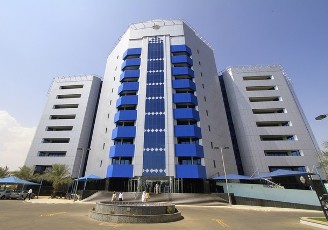Sudan’s central bank adjusts premium upward on forex sales
November 28, 2010 (KHARTOUM) –Sudan’s central bank on Sunday announced that it has raised the premium at which foreign exchange bureaus and banks are allowed to buy forex in a bid to stabilize the Sudanese pound which faces increasingly downward pressure ahead of the referendum that is expected to split the country into two.
 Last week, the authorities introduced the premium concept to encourage holders of forex to come forward and sell their holdings at a generous rate close to that of the black market. The margin was initially set at 16.29% above the official price and today it was increased to 17.60%.
Last week, the authorities introduced the premium concept to encourage holders of forex to come forward and sell their holdings at a generous rate close to that of the black market. The margin was initially set at 16.29% above the official price and today it was increased to 17.60%.
Sunday’s 17.60% above the upper limit of 2.54 of the central bank equals 2.99 pounds, almost equal to the black market rate which ranged between 3.00-3.20 pounds.
Sudan runs a so-called managed float system, in which the central bank calculates an indicative rate based on previous day transactions and intervenes on the market if quotes break away from a plus/minus 3 percent corridor around that rate.
However, in recent months the market experienced a severe shortage in foreign currency prompting the central bank to impose a series of restrictions including a cap on how much people can buy in Forex and requiring documentation to prove a need for it such as traveling abroad for medication, tourism and attending school.
The lack of foreign currency was attributed to “unfounded speculation” over the risk of a return to war and an economic shock ahead of the referendum, which analysts expect will result in independence for oil-producing south Sudan.
That has led to capital flight and prompted Sudanese to horde foreign currency forcing the central bank to use its limited reserves to control the exchange rate.
Analysts and traders said a central bank policy implemented last week ordering banks and exchanges to buy forex at a 16.29 percent margin over their official rates was an effective temporary devaluation of the pound, which the bank hoped to row back once uncertainty around the referendum subsided.
“The basic problem here is liquidity – the black market is continuing to rise because there isn’t enough liquidity yet,” said one trader.
Moreover, Sudan’s limited foreign exchange reserves has limited its ability to intervene effectively to contain the exchange rate.
In a report released last August, the International Monetary Fund (IMF) stressed the urgency of rebuilding Sudan’s sharply declining reserves of foreign currency and undertaking further measures to keep borrowing under control.
The IMF report showed a sharp decline in reserves held by the Sudan central bank from $1.58 billion in 2006 to $390 million in 2009 which is estimated to cover a little over two weeks of imports.
(ST)

Paul Chadrack
Sudan’s central bank adjusts premium upward on forex sales
sudan is really a fall state rule by Islamic fanaticism. southerners will feel good economic only after independent from the terrorist north.